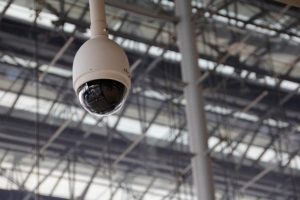Top Security Features Every Business Should Have
It would help if you took security seriously, no matter how small or large your business is. If you don’t have the right security features in place, you could be putting your data and customers at risk. You must have wireless doorbells and locks to protect your business from burglars and other criminals. You should also have a security system that detects intruders and send alerts to the authorities. Here are some of the top security features every business should have.
Surveillance Cameras
Installing surveillance cameras is one of the best ways to deter crime and protect your business. Cameras can help you keep an eye on what’s happening inside and outside your business, and they can be a valuable tool if something does happen. Make sure your cameras are placed in strategic locations and that you have a way to monitor them.
Alarm System
An alarm system is another important security feature for businesses. If an intruder tries to break in, the alarm will sound and notify the authorities. This can help deter crime and catch criminals before they have a chance to do any damage. Choose an alarm system that’s easy to use and works well with your other security features.
Access Control Lists
Access Control Lists (ACLs) are a fundamental part of network security. They provide a way to control who can access resources on a network. ACLs can allow or deny traffic based on the source and destination IP addresses, port numbers, and other criteria. One of the most important things to understand about ACLs is that they are processed in order from top to bottom. This means that the first rule in an ACL will be processed first, and so on. It is essential to carefully consider the order of your rules when creating an ACL.
Data Storage
To ensure the security and confidentiality of your data, we use a variety of physical, electronic, and procedural safeguards to protect the information stored on our systems. Only authorized personnel have access to the information you provide us, and these employees are required to treat this information by our privacy policies. For example, we limit the number of people with physical access to our database servers and encrypt certain sensitive information during transmission over the Internet. We also require our employees to undergo regular training on security and privacy issues.

Sensors
Many different types of sensors are designed to measure a specific physical characteristic. Some common examples include temperature, humidity, pressure, light, sound, and motion. Sensors can be either analog or digital. Analog sensors produce a continuous signal that can be converted to a digital signal by an analog-to-digital converter. Digital sensors, on the other hand, produce a digital signal that can be read directly by a microcontroller or other digital device.
Different types of sensors include:
- Temperature sensors
- Pressure sensors
- Light sensors
- Sound sensors
- Motion sensors
Your business needs security features to protect your data, customers, and premises. Ensure you have the right security measures to deter crime and keep your business safe.
